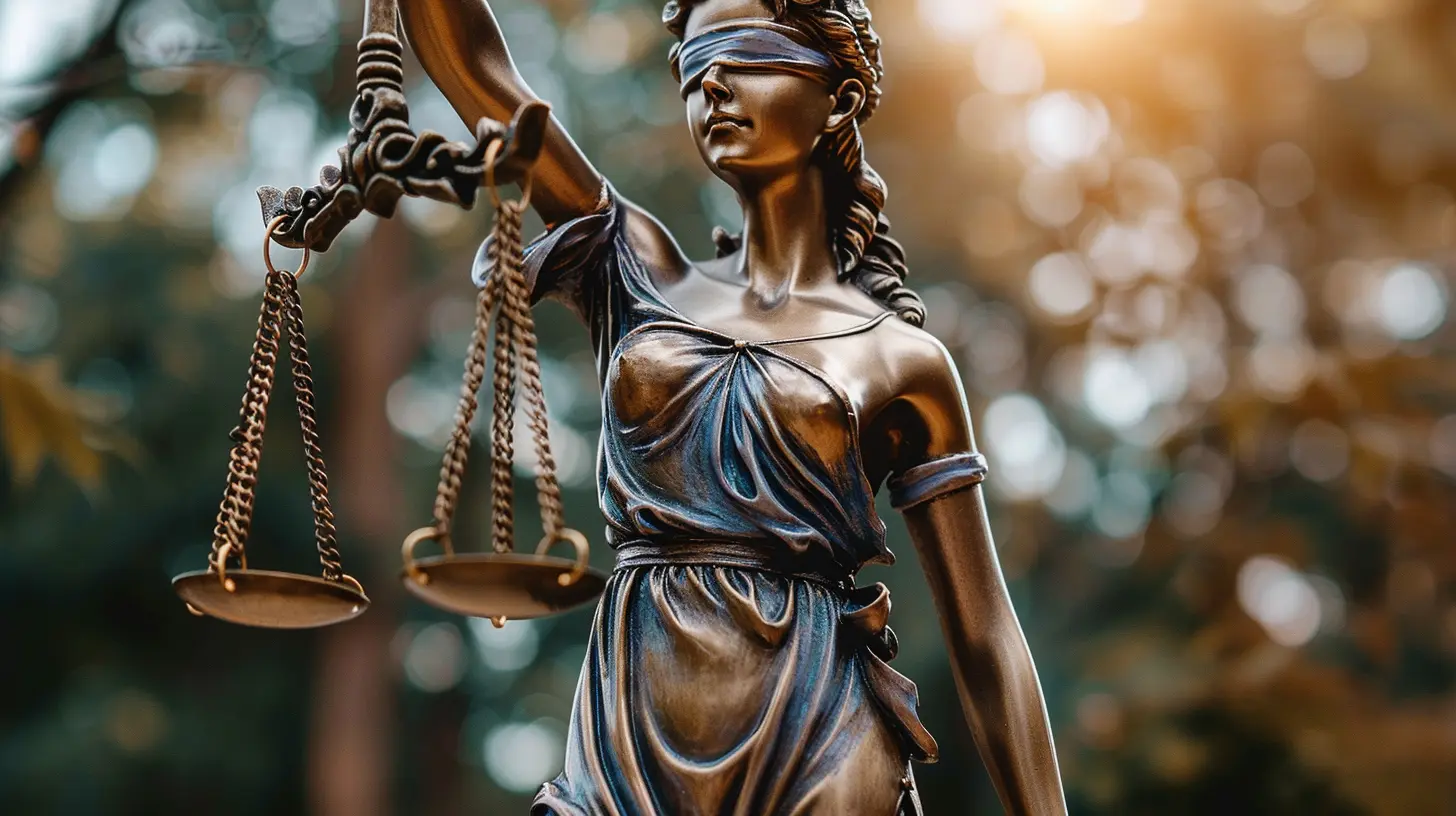Legal Aspects of Licensing and Royalties in Business
26 November 2025
You're probably here because you've heard the terms "licensing" and "royalties" tossed around in the business world and thought, “Alright, sounds important—but what the heck does all that really mean?” Well, friend, buckle up. We're diving deep into the legal side of these money-making tools. And guess what? We're gonna do it in a way that actually makes sense.
Whether you're creating, selling, or lending work, understanding how licensing and royalties work can make or break your business. Let's get into it.
What the Heck Is a License in Business Terms?
Let’s break this down real simple.A license is basically permission. It's like saying, "Hey, you can use my thing, but you don't own it." That “thing” could be a song, a logo, a software, a patented invention—anything that has intellectual property value.
Imagine you're a chef. You created your own secret sauce recipe. Now a big fast-food chain wants to use it in their burgers. Instead of giving them your recipe outright (crazy idea), you license it to them. They use it under your terms, and you still own the rights.
The cool part? You get royalties. Cha-ching!
Types of Licenses You Should Know
Just like there are different types of cars for different roads, there are different licenses for different needs. Here's a quick rundown.1. Exclusive License
This is the VIP ticket of licenses.You give one person or company the exclusive rights to use your intellectual property. Even you might be restricted from using your own stuff, depending on the agreement.
Big brands do this when they want domination in a market using your product or idea.
2. Non-Exclusive License
This one's more like general admission.You can give the same rights to multiple people at the same time. It's more about reach than control. Think of stock photo websites – that one cat picture can be licensed over and over.
3. Sole License
A middle ground.You license to only one party, but you keep the right to use it too. So, it’s exclusive... but not really.
What Are Royalties and Why Do They Matter?
Royalties are payments you (the licensor) get from someone (the licensee) for using your work.It’s passive income, baby.
You work once, and the money keeps rolling in as long as people use your stuff. Authors, musicians, inventors—this is how they make bank.
Payments can be a fixed amount, a percentage of revenue, or based on usage. It all depends on what's in that juicy licensing agreement (we’ll talk more about that soon).
The Legal Foundation of Licensing Agreements
Now let's get serious.Every licensing deal rides on a legal agreement. If you skip this part or do it sloppily, welcome to Lawsuit Land.
So what should a proper licensing agreement cover?
🎯 1. Clearly Define the IP
What exactly is being licensed? Be specific. If it’s vague, it's a legal nightmare waiting to happen.Instead of saying “software,” explain, “Version 3.2 of ABC Inventory Management System, including all updates released as of January 2024.”
📍 2. Scope of License
Is it worldwide? Limited to one country? Can they modify or resell it?Nail down:
- Territory
- Duration
- Usage restrictions
💸 3. Royalty Terms
Include:- Payment structure (flat fee, percentage, per use?)
- Payment frequency (monthly, quarterly?)
- Audit rights (can you check their books?)
Trust, but verify.
🤝 4. Ownership & Rights
Make it crystal clear: “I own the IP. You’re just borrowing it under this license.”It prevents misunderstandings that can turn petty quick.
⚖️ 5. Termination Clause
Because not all relationships last. Have a clean escape plan. Include:- Duration of the agreement
- Grounds for termination (non-payment, breach, etc.)
- Effects of termination (do they stop using your IP immediately?)
🔒 6. Confidentiality
You don’t want competitors snooping around your valuable secrets. Add this clause to protect your proprietary information.Intellectual Property and Licensing: Match Made in Legal Heaven
Okay, a quick detour here.Licensing only works if there's IP involved. Without some kind of legally protected asset, there’s nothing to license.
Let’s break down the common IP types:
Patents
Got a killer invention? Patent it. Then license it to manufacturers. Think Shark Tank deals.Trademarks
Your logo, brand name, or tagline has value. Licensing it out lets others carry your brand, while you stay in control.Copyrights
Perfect for creatives—authors, musicians, designers. You own your content, and others pay royalties to use it.Trade Secrets
This is your secret sauce—literally if you're KFC. You keep it hush-hush, license its use, but don’t reveal the recipe.Common Legal Issues in Licensing and Royalties
Now let’s talk pitfalls. Licensing ain’t all sunshine and passive income.1. Disputes Over Scope of Use
Gray areas in your contract can lead to misuse. That cozy deal can quickly turn into a courtroom drama.Solution? Spell out everything in the agreement. Assume nothing.
2. Missed Payments
Late or missing royalty payments? Ugh. It happens.Always include late fees, audit rights, and the ability to terminate the license if payments stop.
3. Infringement Risks
Sometimes your licensee might misuse your IP or allow others to use it illegally.You’ll need strong legal language to hold them accountable. Better yet, include indemnity clauses—they're like insurance policies for your IP.
4. Tax Issues
Yes, Uncle Sam wants his cut. Royalties often come with tax obligations, both locally and internationally.Talk to a tax professional. Seriously. Don’t mess this up.
Cross-Border Licensing: A Legal Maze
Want to go global? Awesome. But things get tricky.Different countries have different IP laws. What’s protected in the U.S. might not be valid in China or Brazil. And royalty payments might be subject to foreign taxes or currency conversions.
To navigate international waters:
- Register your IP in key markets
- Use local legal counsel
- Understand tax treaties and withholdings
It can be complex, but the upside is massive.
How to Protect Yourself Legally
Here’s your legal toolkit to stay out of trouble.1. Work with an IP Attorney
Seriously, don’t DIY your agreements. Lawyers exist for a reason. A cheap contract now could cost you millions later.2. Register Your IP
You can’t license what you don’t legally own. Register your work—a trademark, patent, or copyright—before licensing it.3. Use Strong Contracts
Templates are okay as a base, but customize them. One-size-fits-all often fits no one.4. Keep Records
Track every royalty payment, communication, and agreement. If things go sideways, documentation is your best defense.Real-World Examples: Licensing in Action
Let’s bring this home with some relatable cases.Apple and Qualcomm
Apple paid billions to Qualcomm for using their patented tech in iPhones. Why? Because Qualcomm owned the IP, and Apple needed it to function.Disney’s Licensing Empire
That Mickey Mouse merch? Disney doesn’t make all of it. They license their characters to third parties and rake in royalties. Licensing is a huge chunk of their revenue.Microsoft Office
Ever notice how you never own Microsoft Office anymore? You're "licensed" to use it—monthly. That’s SaaS licensing. And it’s brilliant.Why Every Business Should Care About Licensing and Royalties
Even if you’re a one-person operation or just getting started, you need to think about this stuff.Why? Because whether you're creating content, software, designs, courses—you’re building intellectual property. The sooner you understand how licensing and royalties work, the sooner you can start monetizing smarter.
Think of licensing as renting out your brain’s creations, and royalties as the rent checks. It's leveraging what you made once into recurring revenue over time.
Final Thoughts: Let Your IP Work For You
You worked hard to create something valuable. Why just sell it once? Licensing and royalties let you scale, monetize, and protect your genius.But it’s not a free-for-all. The legal side of things can be tricky. So take the time to understand your rights, write solid agreements, and don’t cut legal corners. You’ll thank yourself later.
Because in the world of business, smart money always comes with smart legal moves.
all images in this post were generated using AI tools
Category:
Business LawAuthor:

Amara Acevedo
Discussion
rate this article
1 comments
Leona McTier
Understanding licensing and royalties is crucial; they not only shape business success but also reflect the integrity of creative ownership.
November 27, 2025 at 4:06 AM

Amara Acevedo
Thank you for your insightful comment! I completely agree—understanding these concepts is essential for protecting creators and ensuring fair business practices.


